MokerLink 2G05210GSM Management
This is a web managed switch. We can go to 192.168.2.1 and login.
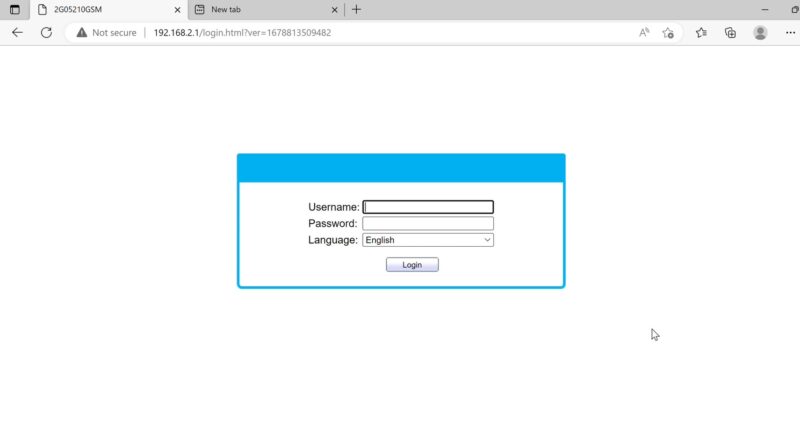
While this is not the most exciting management interface, looking like a web page from the late 1990s, there are a few nice features. Take, for instance, the top port status display. We can see we are plugged into port 2 here.
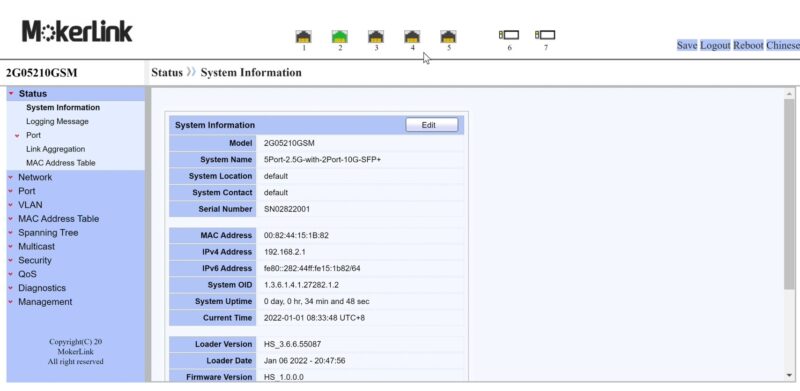
The VLAN configuration worked, but it is a bit clunky. There is also a link aggregation mode that one can setup.
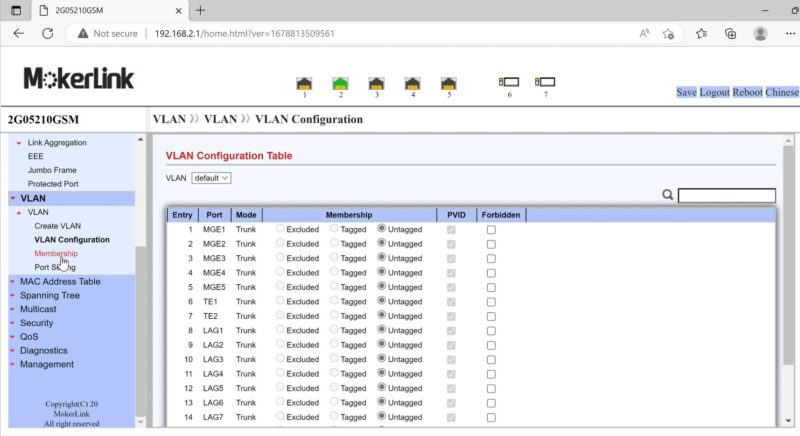
Here are the spanning tree port settings:
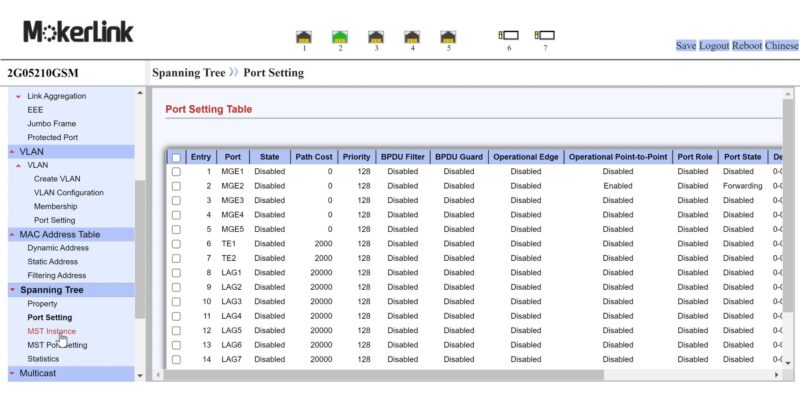
Here are the QoS settings:
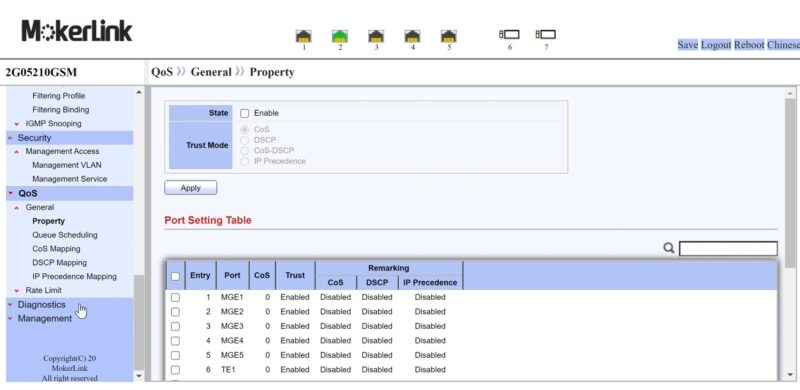
Here are the management services, we can see HTTPS and SSH are not enabled by default, but SNMP and HTTP are.
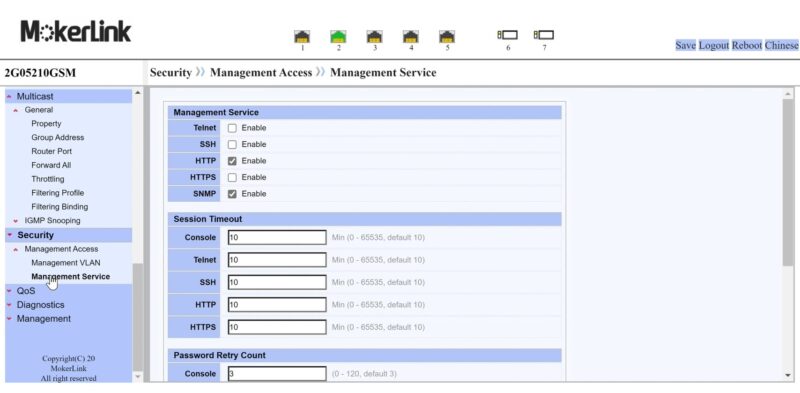
If you are thinking that this switch is going to be a replacement for a high-end Cisco device, it is better to temper those expectations. This is a fairly simple web management interface. If you just want basic web management to setup VLANs for example, then this is going to be a huge feature that puts this switch in a different class from the unmanaged switches we have reviewed.
MokerLink 2G05210GSM Performance
In terms of performance, this seems to be a decent performer.
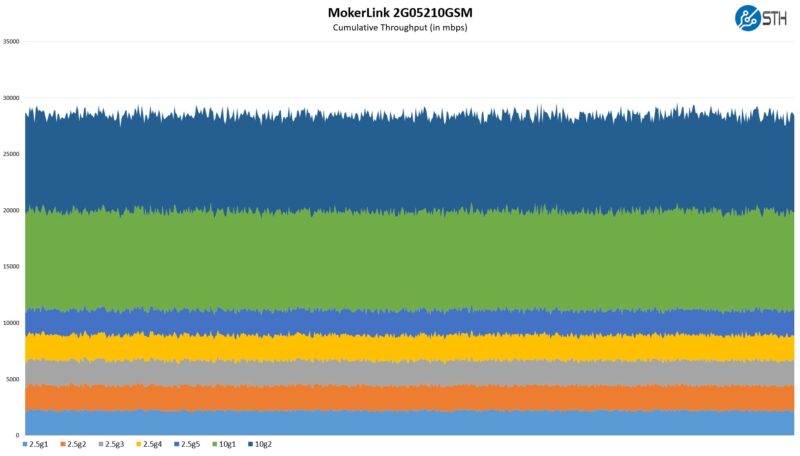
This switch performed similarly to the other inexpensive switches we have reviewed.
MokerLink 2G05210GSM Power Consumption
This MokerLink comes with a small 12V 2A power adapter. These are generally low power devices.
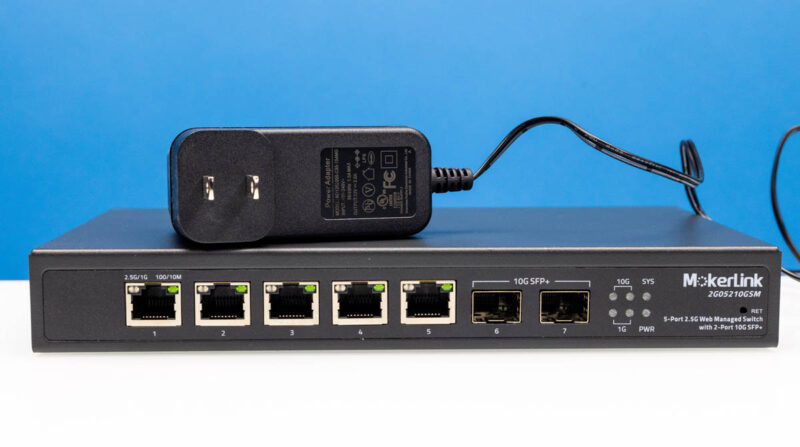
At idle, we got around 5W which is about twice what we see from the unmanaged low-power switches in this class.
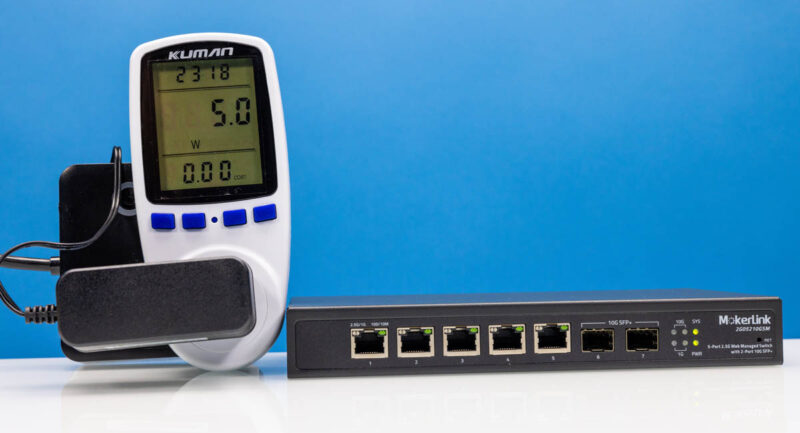
With a single 2.5GbE port plugged in, we added 0.7W for 5.7W total. Incrementally, that is in line with other unmanaged switches, but it is still more than we generally see for those other units.
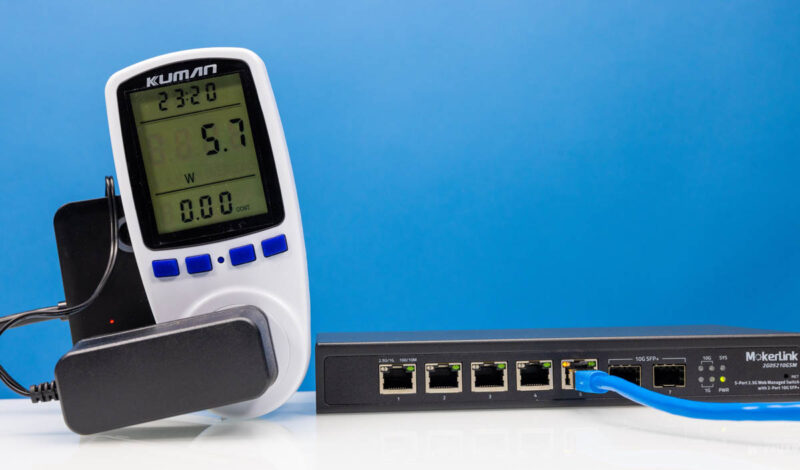
We used a 10Gbase-T SFP+ pluggable to add a good amount of power consumption in a SFP+ port and we got 7.4W. An incremental 2.4W feels like a lot compared to what we have seen in some of the unmanaged switches.
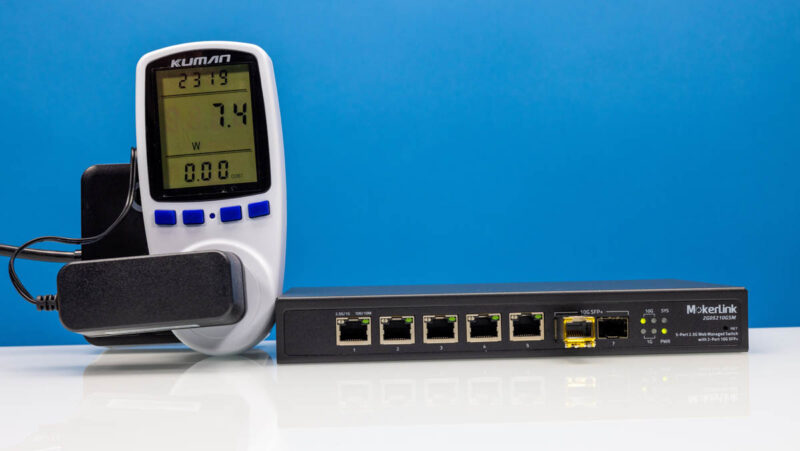
Overall the power consumption of the Mokerlink was still not that high on an absolute scale, but it was notably higher than other switches we have tested. It is also a lot lower than the MikroTik CRS310-8G+2S+IN 8-port 2.5GbE and 2-port 10GbE Switch we reviewed with only three fewer 2.5GbE ports.
Final Words
We have had a lot of folks ask for inexpensive managed switches. This somewhat fits that description. Over the past nine months it has dropped from $249 to $189 in price. At $189, it feels a bit costly considering the MikroTik CRS310-8G+2S+IN has three more 2.5GbE ports is only a bit more and is from a better-known brand.
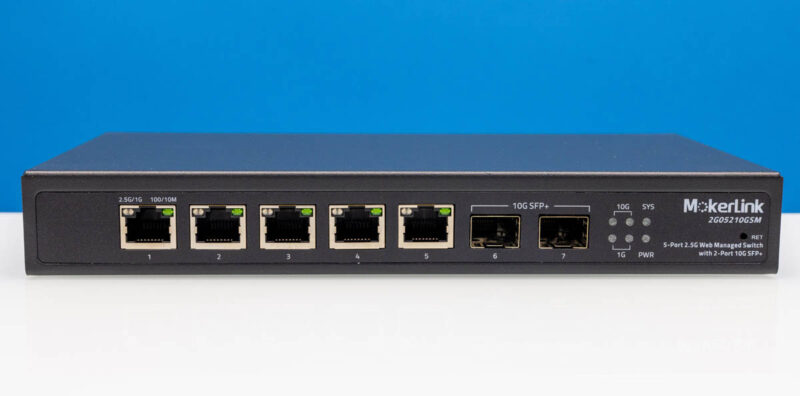
Still, folks have asked what the managed versions of these switches look like. Hopefully, this helps provide some answers. We are going to be looking at some of the even lower-cost managed options soon, and ones with PoE as well.

Overall, this is an interesting option if you want a lower-cost managed switch with this port configuration.
Where to Buy
We purchased our unit on Amazon. Here is the affiliate link for this model.
Ultimate Fanless 2.5GbE Switch Buyer’s Guide
You may have seen that we published the Ultimate Cheap Fanless 2.5GbE Switch Buyer’s Guide. Here is the video for that one:
You can see more switches in this class in that video.




The management page looks exactly like my Binardat 2G08-080GPM switch
The 4x 2.5 plus 2x SFP+ managed ones have collapsed in price in the past few weeks.
I bought an unmanaged one for £32 a few months ago because the managed were over £70.
Just ordered a managed one for £37 on Ali Express.
@Emanuel Levy: They are available from multiple brands on AliExpress, including Hasivo and a few others. Some of them offer PoE versions, others don’t. :)
The management Web UI is a generic Realtek one with minor rebranding as far as I can tell from pulling apart the firmware. It even contains hidden UI menus for changing the branding and default settings without having to recompile the firmware.
Too bad we don’t see how does the management via ssh fare
@Midgy if it’s anything like the Hasivo then imagine it like a striped down version of a Cisco Catalyst CLI. The basic syntax is the same just some (quality of life) commands and parameters are missing
Can this switch pass .1q tagged packets like an L2 dumb switch should? I’ve read in other comments that the QNAPs cannot. A good way to test this would be between two Proxmox hosts running vlans. Can two sets of VMs on two different VLANs talk across this switch?
@Nate In brief: yes.
In long: I’ve just got this switch up and running with multiple vlans and two other downstream switches, also trunked with the same vlans. Base/untagged management network, and then tagged vlans for client devices that get untagged coming out of the point-of-use port or that resolve to untagged in the wireless AP. Honestly the only challenge I’m having is getting the SFP+ ports working with some 10gtek DACs and 10gb cards (intel-based). Cables work point-to-point between servers but can’t establish link to the switch, even when looped back port-to-port on the switch. Both brands talk up their SFP compatability so I’m a little disappointed (if unsuprised) that they don’t work together, but something to be aware of if you’re trying to put together something inexpensive with new equipment.
@Michael I’ve posted about the issue with DACs on the Hasivo version of this same switch in the forum several months ago. Basically, it definitely doesn’t work with DAC cables longer than 1 meter and between certain devices it doesn’t work at all.
If you use fiber transceivers instead it works fine, even the cheap ones from 10Gtek, Ipolex, etc.
You can find more here:
https://forums.servethehome.com/index.php?threads/hasivo-switch-dac-support.40328/page-2
This is close to perfect for many if it came in a version with two RJ45 ports instead of SPF+.
Even better would be 8x 2.5 ports.
I had to use the MokerLink 10GBase-SR SFP+ transceivers otherwise the managed interface wouldn’t function properly. I verified that the config of the MokerLink switch was saved and applied for DHCP but I kept having to reboot the switch in order to get it to be accessible again with the 10Gtek AXS85-192-M3 transceivers. The weird thing was that with the 10Gtek modules the switch did seem to function as an unmanaged switch but the managed interface would eventually become unreachable.